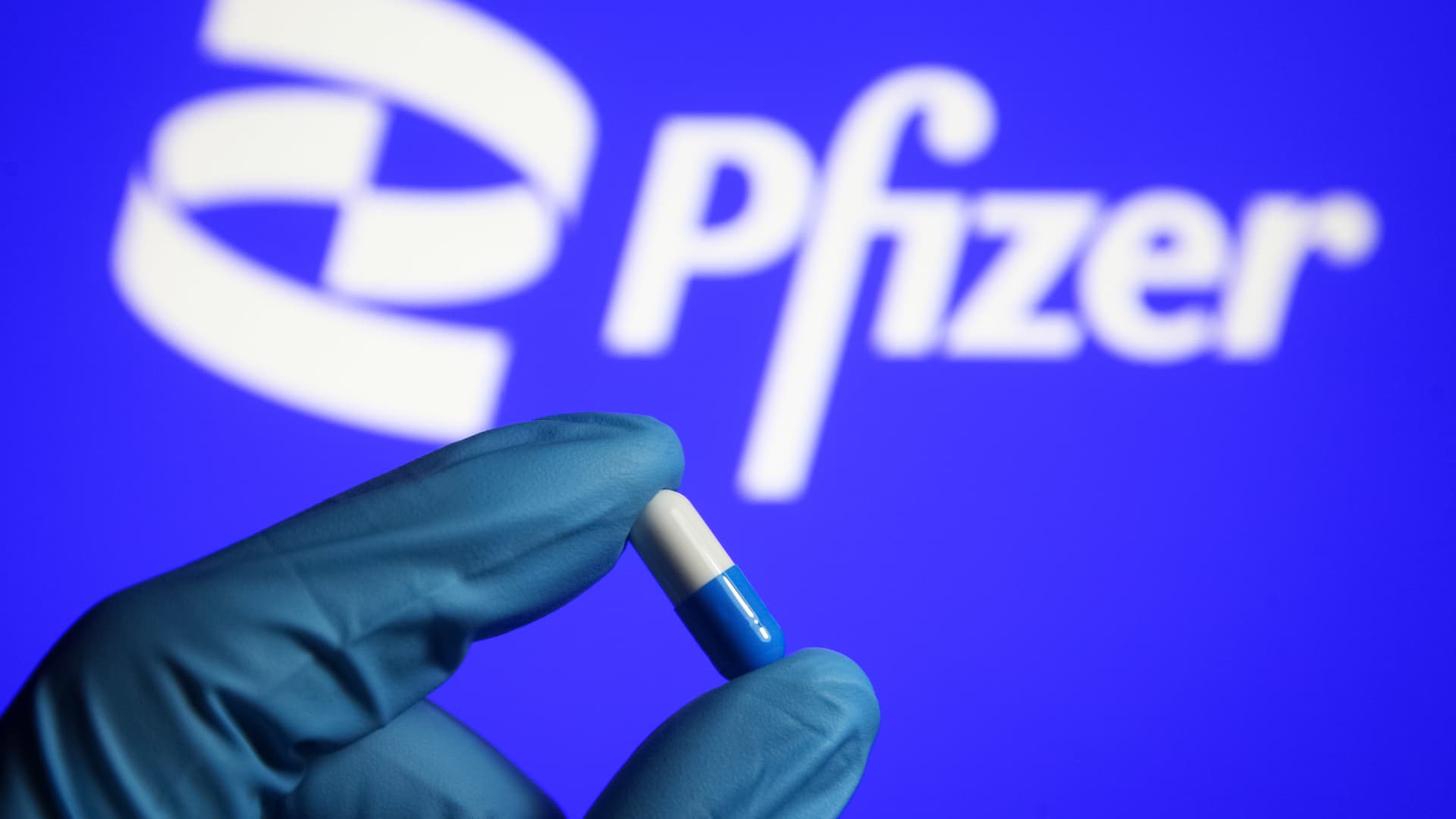[ad_1]
Sopa Pictures | Lightrocket | Getty Pictures
Pfizer’s twice-daily model of its experimental weight reduction tablet has now joined a protracted listing of different scrapped medication that aimed to deal with weight problems however got here with unintended penalties.
The drugmaker on Friday mentioned it’s going to cease creating the twice-daily therapy, danuglipron, after overweight sufferers taking the drug misplaced important weight however skilled excessive charges of hostile negative effects in a midstage medical trial. Pfizer famous that it’ll launch knowledge on a once-daily model of the tablet subsequent 12 months, which can “inform the trail ahead.”
The announcement got here six months after Pfizer scrapped a special once-daily tablet in June, citing elevated liver enzymes. Pfizer’s transfer to drop two weight problems drug candidates in just some months demonstrates how troublesome it’s to develop an efficient, protected and tolerable therapy for shedding pounds, even after current breakthrough drugs entered the house.
That features Novo Nordisk‘s Wegovy and diabetes therapy Ozempic in addition to Eli Lilly‘s diabetes drug Mounjaro. They’ve all skyrocketed in reputation — and slipped into shortages — over the past 12 months for safely and efficiently inflicting important weight reduction. An estimated 40% of U.S. adults are overweight, making these medication the pharmaceutical trade’s latest money cow.
However earlier than the present weight reduction trade gold rush, the trail to treating weight problems was strewn with failures relationship again many years.
The primary motive many experimental therapies have been scrapped by drugmakers, rejected by U.S. regulators or finally pulled from the market have been unintended negative effects, together with elevated liver enzymes, most cancers dangers, cardiovascular dangers and critical psychiatric issues, similar to suicide.
Eisai’s lorcaserin
One of the current casualties amongst experimental weight problems medication is Japanese drugmaker Eisai’s lorcaserin, which was eliminated from the market in 2020 attributable to inflicting an elevated danger of most cancers in sufferers.
The Meals and Drug Administration greenlit lorcaserin in 2012 based mostly on a number of medical trials however required Eisai to conduct a bigger and longer examine on the drug after the approval.
That examine on about 12,000 sufferers over 5 years discovered that extra folks taking lorcaserin have been recognized with most cancers in contrast with these taking a placebo, which led the FDA to tug the drug from the market.
Lorcaserin, marketed beneath the model identify Belviq, did not seem to realize a lot traction whereas it was commercially obtainable. In its full-year 2019 earnings, Eisai reported that Lorcaserin had gross sales of $28.1 million within the U.S. for the 12 months. International gross sales of the drug have been about $42 million. Eisai’s whole gross sales for the 12 months have been roughly $4.42 billion.
Sanofi’s rimonabant
An weight problems drug known as rimonabant from Sanofi and Aventis was withdrawn from all markets in 2008 as a result of danger of great psychiatric issues, together with suicide.
Notably, the therapy by no means received approval within the U.S. as a result of a panel of specialists to the FDA rejected the drug amid fears that it might trigger suicidal ideas. However European regulators accepted rimonabant, marketed beneath the identify Acomplia, in 2006 based mostly on intensive medical trials.
Two years later, European regulators beneficial the suspension of rimonabant after certainly one of its committees decided that the dangers of the therapy — notably psychiatric points — outweighed its advantages.
The therapy suppressed urge for food by blocking the receptor of cannabinoid substances within the mind, which performs an vital position in regulating the physique’s meals consumption and metabolism.
Resulting from rimonabant’s restricted time available on the market and failure to win U.S. approval, the drug by no means reached Sanofi’s lofty projection that it could finally generate $3 billion a 12 months or extra.
Abbott Laboratories’ sibutramine
A number of weight problems medication have additionally been discontinued, rejected or pulled from the market attributable to unintended cardiovascular dangers.
That features sibutramine from Abbott Laboratories, which was as soon as extensively used as a therapy for weight problems together with eating regimen and train.
The drug was first accepted in 1997, however carried warnings about hypertension and a danger of coronary heart assault and stroke in cardiovascular sufferers.
A big, long-term trial on practically 10,000 adults confirmed that sibutramine was related to a major enhance in cardiovascular occasions, which prompted regulators within the U.S. and Europe to tug the drug from these markets in 2010.
Gross sales of sibutramine had been dwindling forward of its removing from the market. The drug raked in solely $80 million globally, together with $20 million from the U.S., within the first 9 months of 2010.
Latest proof means that the latest slate of accepted weight reduction medication could have the alternative impact on coronary heart well being: Weekly injections of Wegovy slashed the general danger of coronary heart assault, stroke and dying from cardiovascular causes by 20%, in line with a current medical trial.


